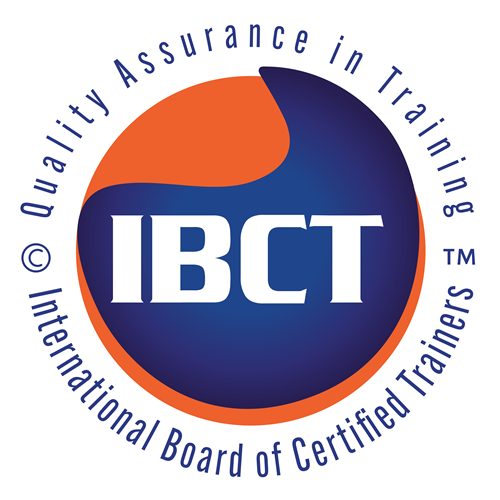In this blog, you will know that Civility is a power. Focus on civility in a training, and you begin to build trust.
What was it about this trainer that had me wondering whether I’d wasted my money and was now wasting precious hours I could better use to complete some pressing project?
Click to view the infographic
Now – go Unleash Civility!
An Infographic
This infographic illustrates five reasons civility should be part of every training.
I’d attended several workshops provided by the same company that employed today’s trainer, and while the previous presenters had shown up looking professional, this fellow sat there in sweats that looked a bit too comfy. (And this was pre-Covid!) His hair needed a good combing – if not a good washing – and he eyed us as though getting content across was the last thing on his mind.
My area of expertise is civility. I work as a trainer, consultant, and coach with organizations to help them unleash the power of civility to create and grow their own unique cultures of trust.
This trainer conflicted with my very definition of civility and I could already feel my muscles of incivility begin to flex. There’s nothing like disrespect to undermine an environment conducive to learning.
I define civility as The Consistent Communication of Respect, and what was missing by our trainer – at least so far – was his communication of respect. I felt this trainer had no respect for us – our time, our money, even the value of the subject matter we each needed for our professional success.
I wasn’t asking him to show up in a coat and tie, but I believed that some semblance of respect for personal presence and attire was in order.
As the day progressed, the respect gauge stayed stuck on low. My presenter droned on with the energy of a run-down flashlight battery. He complained about his employer and the company’s way of doing business. He showed no interest in responding to participants’ questions. And when he did answer, his responses were unoriginal and with no apparent consideration for the attendee’s motive or frame of mind.
Was he rude? No. Was he disrespectful? Yes. His presence, delivery, slow return from breaks, and lack of energy undermined the value of the subject and our takeaways.
The civility that trainers bring to their virtual or in-person sessions is often undervalued and misunderstood.
Civility is a power. Focus on civility in a training, and you begin to build trust. Disregard civility or undervalue its critical role, and risk losing the respect of your attendees and their ability to make your training stick.
civility should be part of every training
Here are five reasons civility should be part of every training
1- Civility is the CONSISTENT communication of respect.
That means from the moment an attendee walks into the room or enters your virtual classroom, you – as the trainer – are sending a message, and it must be one of respect. In an in-person room remember that your first impression is physical. Your attendee is sizing you up (consciously or unconsciously) by what you wear, how you sit or stand, your grooming, and your smile. In fact, that smile of yours just may be your ticket to building trust with your students.
In a virtual setting: double-check your lighting, be sure you speak into the camera so it appears you’re speaking directly to the attendee, and for heaven’s sake double-check what’s in your background! An inappropriate picture on the wall or your kids dashing through the frame is more than a little distracting.
2- When you listen, you’re building a relationship, and civility requires listening
Don’t rush with your response to a question. Pause and ponder. Think about the person with the question and try to determine their motive, their frame of mind, and how they need to hear the answer. Remember, different personalities have different preferences for how they receive information.
3- You’re the model of civility
Or you should be. When you show respect – even in the face of an adversarial question – you build trust and safety not only with the questioner, but with the group. Working to clarify and to understand the other person’s perspective promotes energy, positivity, and probably, more questions!
4- You change the energy
Civility punctuates with humor, enthusiasm, and encouragement. A spontaneous laugh in class not only reduces stress but cranks up the energy. Even a couple of hours into a training, you may have attendees who are still tentative about asking a question or who resent having been required to attend your training. A chuckle…especially if it’s coupled with some self-deprecating humor…may be the key to a more enthusiastic shift in attitude.
5- You can relax!
Civility owns its mistakes. If you get something wrong, don’t panic. Let it be an opportunity to build trust. You may be the trainer, but that doesn’t mean you’re perfect. If you get something wrong, let everyone know, and then move on.
Civility isn’t some antiquated protocol of formalities. It’s a power that you can unleash – and as a trainer – must unleash. When you consistently communicate respect through what you say, what you do, and how you show up, you build a safe and trusting environment for the transfer of knowledge.
As for the sweats – like the ones my trainer wore – save them for a marathon session of Netflix.
Now – go Unleash Civility!
consistently communicate respect
Final Thoughts
When you consistently communicate respect through what you say, what you do, and how you show up, you build a safe and trusting environment for the transfer of knowledge.

Join Now
The world’s most powerful and popular train-the-trainer program. Be part of the most empowered HRD community across the globe.



